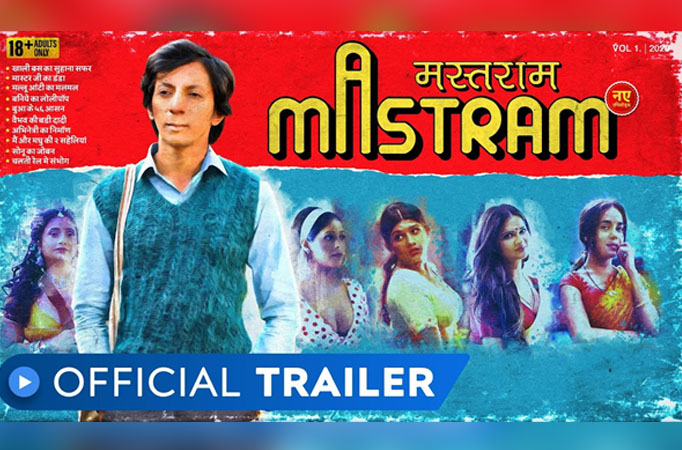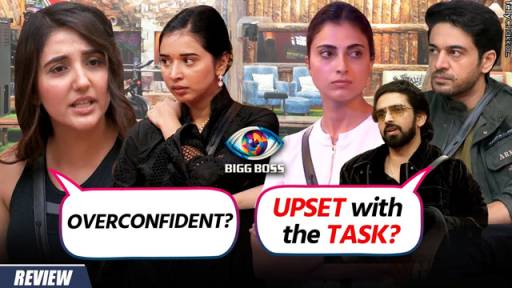
MUMBAI: What is the story about?
Rajaram could have been any other aspirant Hindi writer in the 80s, endlessly waiting to get his literary magnum opus published. Yet, time was running out, he was making very little money and his publisher only had a simple suggestion to offer – write something ‘masaledaar’. It takes a friend for him to understand that ‘sex always sells’ regardless of the form. Rajaram, still apprehensive of the move, adopts a pseudonym Mastram to pen a pornographic fiction series that would go onto witness unforeseen fame. The way he looks at life isn’t the same anymore – he sexualises almost anything and everything under the sun and channelises his sexual awakening into writing and not action. Complications arise when he falls in love with a girl. Will he ever be able to discuss ‘Mastram’ with her at all?
Performances?
Anshuman Jha plays Mastram well and makes a genuine attempt to understand his psyche. The performance is sincere. However, there’s a sense of inhibition and the submission to the role feels incomplete on a certain level as well. The ease which he lacks is exactly what Aakash Dabhade has – he is an absolute hoot as the friend of Mastram. Vipin Sharma perfectly fits into the shoes of the greedy publisher – he builds upon the notoriousness of the character with subtle glances and expressions effectively. Tara Alisha Berry has a long way to go with her acting skills – the performance remains very superficial and perfunctory. Jagat Singh as the creepy uncle has good screen presence, but the poor characterisation doesn’t help him add much value to the show. The likes of Nehal Vadoliya, Harshita Kushwaha, Murari Kumar get very little to do too.
Analysis
When any filmmaker attempts to narrate the true story behind the popularity of Mastram series that enjoyed never-seen-before readership across Hindi readers in the country in the 80s, you sincerely hope it would be done for the right reasons (especially in the web form) – to delve more into the mind of the writer, how he finds inspiration for his stories, handles fame and stays sane (despite his wild imaginary streaks).
Of course, there’s no chance that a show about Mastram will not have sex in it. To blatantly put it, it’s exactly what’s running in the writer’s head all the time. The makers of Mastram, the web series (like Mastram himself), sell the sex in the stories of Mastram, and lose sight of the fact that the show is about the writer as well. Most episodes follow a clear pattern – the protagonist finds his characters from the world around him, his past and the show visually demonstrates the action in the written material. It’s done so repetitively that the conflict in the series takes a lot of time to come alive.
Mastram, the series, becomes one like the many erotic books that its protagonist pens – there’s only one dimension. One understands that the first few episodes of the sexualisation is indeed necessary to establish the character’s identity (which is done rather well), but there’s no sight of story progress at all later. The atmosphere around the life of Rajaram is interesting but its characters only get a bunch of standalone scenes with a one-note characterisation – be it his sexually charged friend, the sexually inactive uncle who raises him, the publisher who manipulates Rajaram into a money-making machine and the perennially suspicious would-be.
It would have been fascinating to understand how the books changed Rajaram’s very idea of life. Did he enjoy it? Was he internally destroyed? What kept his creative juices alive? What is it like to enjoy fame secretively? Many such ideas are reduced to the subtext. The last couple of episodes bring some momentum to the plot – the publisher’s curiosity about the whereabouts of the characters in his novels, an actress threatening to out Rajaram, his romantic interest getting to know about the other side to his life. Mastram grossly underutilises the comedic potential of its show owing to its distractions. The ending of the show is a job smartly done – but will season two stage a revival?
Music and other departments?
The music and background score in the film thankfully go beyond the sexual groans. Although a tinge of subtlety could have helped, the score remains largely effective as per the needs of the narrative. One wishes the show didn’t have to exaggerate its voyeuristic undertones so emphatically – of course, you can call it rawness, but the cinematographer could have done better to distinguish it from soft porn. The editing misses an opportunity to cut down on the indulgence and repetitive nature of the show’s storytelling. The dialogues are interesting, though it could have been whittier and sharper.
Highlights?
A few impressive performances
The fiery initial episodes
Drawbacks?
Doesn’t do justice to the story’s potential
Repetitive nature of its storytelling
Exaggerated element of voyeurism
SOURCE - BINGED

















Add new comment